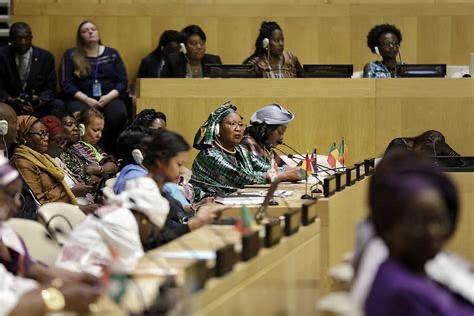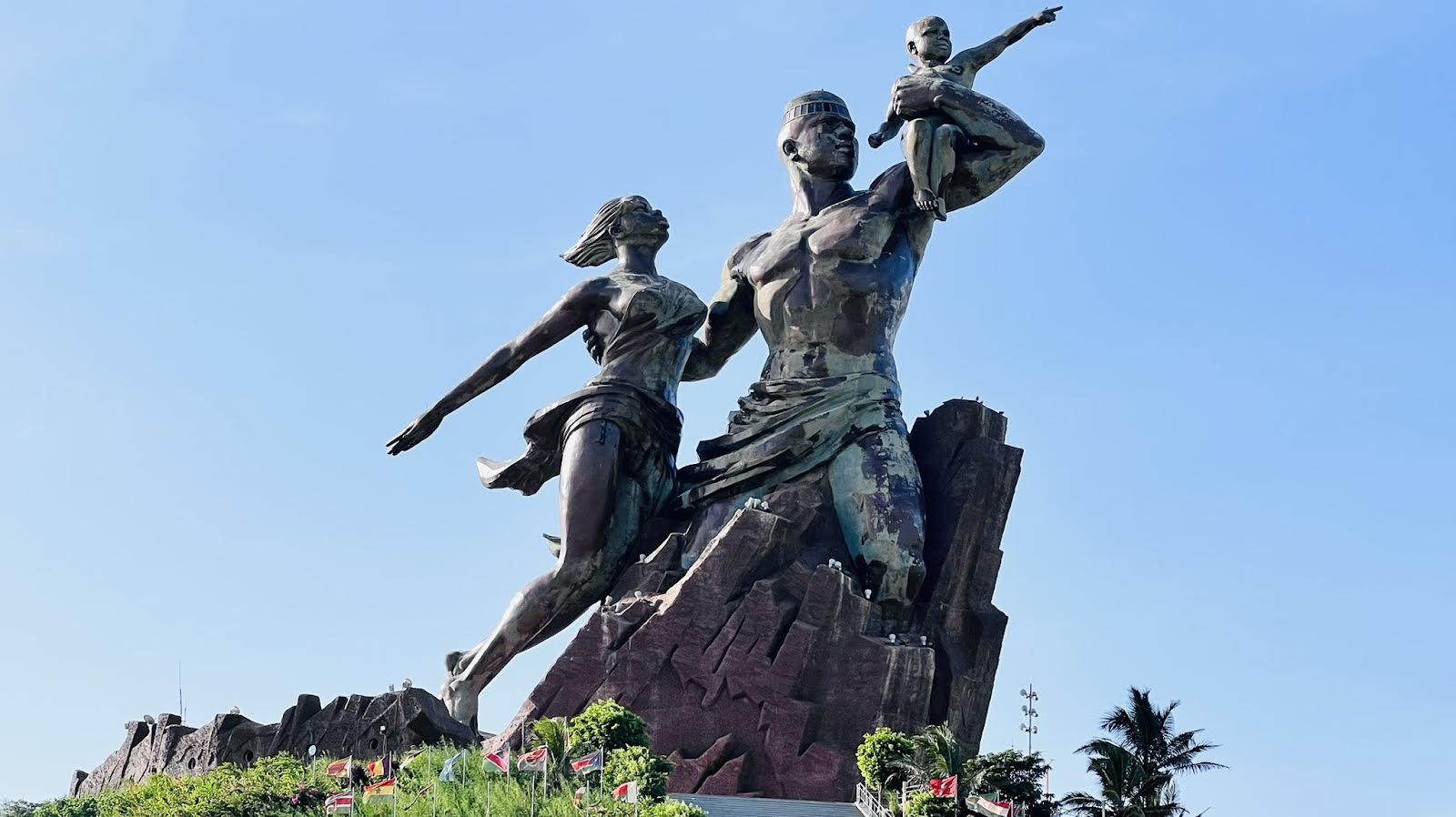Debating Ideas aims to reflect the values and editorial ethos of the African Arguments book series, publishing engaged, often radical, scholarship, original and activist writing from within the African continent and beyond. It offers debates and engagements, contexts and controversies, and reviews and responses flowing from the African Arguments books.
The nation state, by extension representational politics, can neither reconcile class differences nor liberate women, whilst its survival is facilitated by neoliberal, racial capitalist patriarchy whose very foundations go against the existence of a freed woman.
To argue that an increase in numbers of women in political office equals prosperity for all is not only deceitful but is also an erasure of everyday radical acts of freedom by women including persons without political power. Moreover, for feminist and women’s movements to focus energy on campaigning for more women in politics is akin to pouring water in a saucepan with a hole: it can never fill up.
East African countries such as Rwanda, Tanzania and Uganda are celebrated internationally for ‘having more women in Parliament’ by international development institutions based on indexes such as ‘gender parity’ – a statistical measure used to describe ratios between women and men to show the liberal progression of these African countries. Often what the indexes omit is the material conditions of women.
When news of Tanzanian President Samia Suluhu Hassan’s succession on 19 March 2021 hit the internet, feminists in East Africa celebrated the news, hoping that a female politician would reverse the late President Magufuli’s violent gendered policies including education policy prohibiting pregnant girls from returning to school even after childbirth. And the discriminatory policy was indeed lifted.
However, lacking in the celebration was the acknowledgment that President Suluhu’s hands are not that clean for she was Vice President during the Magufuli’s reign of terror against girls. Furthermore is the selective amnesia in critiquing how gendered political institutions function; women in their representational capacity are never the centres of power within the current construction of democracy in Africa.
Currently President Suluhu’s government is in the headlines for its violent capitalist policy to brutally evict over 70,000 Maasai people from their ancestral land to lease the land to a United Arab Emirates-based company to create a wildlife corridor for trophy hunting and elite tourism. Media reports show the government deploying organized police violence to dispose and dislocate the Maasai people who include women and children. To echo Ugandan writer Bwesigyebwa Mwesigire’s analysis that ‘the sovereignty of the Nation State is a balance of terror’, attempts at feminizing the state apparatus cannot change its violent foundations or end its war on the citizen.
It is easy to spiral my argument as an indictment of the achievements of representational politics: that would be a fabrication. It is a powerful thing when someone who looks and speaks like us takes on national leadership and how that is closely tied to our capacity to dream. But if that ability to dream is framed as an indicator of progress of all women, then it becomes deeply hypocritical.

African Union in session
Policy as a compromise for women’s liberation
The feminist movement in East Africa has often organized around policy change and representation at national level. In a bid to have women in politics, polices such as affirmative action sprout. Even when intentions are pure, classed women (bourgeoisie) who largely benefit from such policies, once in political office, use their positions to secure power and gatekeep others out.
Feminist theorist Mari Matsuda prompts us to practise a feminism that is capable of meaningfully challenging the structures of domination by applying the ‘other question’ methodology. Matsuda’s analysis focuses on the obvious and non-obvious relationships of domination and the interconnectedness. ‘When I see something that looks racist, I ask where the patriarchy in this is? When I see something that looks sexist, I ask, where is the heterosexism in this? When I see something that looks homophobic, I ask, where is the class interest in this?’
I apply Matsuda’s method as an analytical lens to critique women’s participation in elective politics. In Uganda for example powerful women such as Rebbecca Kadaga, second Deputy Prime Minister and Former Speaker of Parliament, has held onto the affirmative action seat for over 10 years. Kadaga also famously ‘gifted’ Ugandans the now nullified Anti-Homosexuality Act, a law that sought to further criminalize same sex relations by which a section of women would face imprisonment for merely existing and loving who they want. Kadaga is upheld as one of the successes of the women’s movement in Uganda; at the same time, she is championing homophobia at national levels and consequently dehumanizing all gender minorities.
In addition to de-politicized access to power, affirmative action policies’ other downside is that they have contributed to the patronizing of particular political agendas, labelling them as ‘women’s issues’. It is not uncommon for Members of Parliament in Uganda to categorize teenage pregnancy as a ‘women’s issue’, rather than a systemic problem – assigning the responsibility of systemic failure to women MPs.
Uganda especially is currently praised for its progressiveness, as key positions such as Vice President, Prime Minister and Speaker of Parliament are all held by women. However, neoliberal policies that defund ‘feminized sectors’ such as health, education and agriculture are still high on the government’s agenda. This offers a preview into the inconsistences and contradictions of framing gender parity as a pointer for progress – more so in Africa where policy space is prescribed by external intervention – rather than as an indicator of individual achievements outside of the community.
The feminist policy arena backed by media is dominated by organizations tracking the progress of women and issuing success reports conflating individual success as reflecting all women. Recently, The Continent (digital news outlet) published an analysis ‘The struggle for gender parity in African cabinets’ arguing for an increase in the representation of women in elective politics to raise their ability to access and deploy political power. What the authors don’t state however is whether an actual increase in numbers is parallel to collective freedom for women, resulting in better social, political, and economic wellbeing – the ugly truth is a categorical no!
The authors highlight Guinea Bissau and Rwanda as the model countries for the struggle for gender parity. Yet, a UN Women data report that praises Rwanda for having 61% of seats occupied by women in Parliament also shows how in every other aspect of life, from illiteracy rates to poverty, women trail behind men. Meanwhile, in the case of Guinea Bissau, 25.7% of women aged 20–24 years old were married or in a union before age 18 as of 2020.

Does the quota system resolve social exclusion problems? Credit: Sumit Aryal
What use is the gender parity model to our collective freedom?
Like clockwork, you can spin the African continent map for countries praised for progress on gender parity from South Africa and Ethiopia to Uganda and it will still not reflect women’s wellbeing. To echo feminist academic Joy James, ‘the expression of feminist love through policy will not trickle down to the poor women, policy is a comprise.’
Joy James in her book, Shadow Boxing, Representation of Black Feminist Politics speaks of how conventional political discourse pays little attention to advocacy for redirecting material resources to the less privileged. The book elaborates on the dual impact of the deployment of affirmative action that often contributes to widening the resegregation of the privileged and the disenfranchised. In Uganda for example, historically ostracized regions such as Karamoja located in the north-eastern part of the country have politically been represented by female ministers for over 15 years. However, material needs such as food haven’t trickled down to the ordinary women in the region. Karamoja is currently experiencing extreme famine.
Women NGOs and their band-aid solutions
The feminist movement in East Africa under the NGO umbrella, in a bid to liberate women as a political category, has employed state feminism to focus on policy and incorporate governmental initiatives as a vehicle to transform gender relations; the result, at least in the case for Uganda, has meant access to political power for elite women. For example, organizations such the Uganda Parliamentary Association focus on women-friendly policy agendas such as affirmative action and others to ’empower’ women, but the empowerment has not trickled down to individual women and collectively all women.
The gender parity agenda set by neoliberal institutions like UN Women, who in turn fund NGOs, has resulted in a mushrooming of NGOs empowering women to run for public office with an endless stream of funding, with proposals that paint individual achievements as collective power while exploiting women as a voting constituency.
The insistence on ‘markers’ of neoliberal progress, such as ‘gender parity’, has followed a categorization of women into a constituency worth extracting during each election cycle. The ‘women population’ is worn as a badge of honour for politicians such as President Museveni nicknamed ‘bringer of freedom to women’ while his government policies continue to neglect their wellbeing.
The same indicator of progress is then used to discredit women and feminist advocacy agents when they demand that women be availed of full citizenship rights, with condescending responses such as ‘but why don’t you appreciate the development we have given you?’
Attempts to have global unified systems of analysis (read gender parity) have caused African women and by extension women’s movements advocating for agendas and causes to employ tools and narratives that are in contradiction with our collective freedom.
NGOs recruit potential political activists and turn resistance into a nine-to-five job with no accountability to the community but rather to donors, as writer and activist Arundhati Roy reminds us in her essay, ‘The NGO-izationof Resistance’: ‘NGOs give the impression that they are filling the vacuum created by a retreating state. And they are, but their real contribution is that they defuse political anger and dole out as aid or benevolence what people ought to have by right. They alter the public psyche’.
Roy’s account is further corroborated in Sylvia Tamale’s book Decolonization and Afro-feminism, where she asks us to rethink our participation in institutions founded in colonial patriarchy and anti-blackness that have turned our ‘democratic participation’ into an analogue. Women’s participation in elective politics stabilizes the very systems of violence.
How do we find freedom?
Abolition feminisms teaches that abolition does require we change one thing which is everything. It is through this framework that I imagine a better practice of solidarity, one that is community-based and exists outside the African nation-state model, backed by Western democracy aspirations.
First, I think of how the category ‘woman’ as a political unit for organizing has limited both feminist thinking and taken us back to a gender binary system that we seek to dismantle. Here I think with Joy James’s theorization of the ‘captive maternal’, meaning someone who is either biologically female or those feminized into caretaking and consumption. By naming the material conditions such as standards of living, income, access to health care, education and food, that are often systemically denied to people on the margins of society, is the beginning to plotting freedom outside of the binary. James writes of the ‘captive maternal’ as a superpower shaped by trauma, but it also has the steely spine of deep love.
Freedom dreaming starts with imagination. As feminist academic, Saidiya Hartman reminds us: ‘so much of the work of oppression is policing the imagination’.
So I would like to argue: the time and energies that African feminists focus on inserting women into colonial inherited institutions built to exploit and keep them out is better spent organizing and learning from grassroot organizations; when it comes to carefully sharing resources outside of the neoliberal frame that individualizes collective achievements, as well as building communities of mutual aid that are not funder dependent. Focusing on mutual aid groups that front collective wellbeing both emotionally and in terms of material benefits can and will move us further than the politics of representation. We can focus on organizing outside structures of oppression.
So maybe, instead of fighting for a seat at the table, or breaking the table, we find solace in organizing and living on the margins. I don’t want more representation, give me freedom!
About the series:
‘African Feminisms: A Constant Awakening’ is Debating Ideas’ latest series – co-edited by Rosebell Kagumire – examining social and feminist movements on the continent, the shifts and implications internally and externally. What is shaping the discourse around women’s and gender-diverse people’s issues and their rights? The series will investigate some of the most pertinent intersecting issues such as: understanding the division of theory, policy and practice; new age influences and what grounds them? These themes will be situated in the larger continental debates of politics and human development as well as lessons from South-South collaboration in re-centring decolonization in the struggle for equality and freedom.
Source: africanarguments.org


